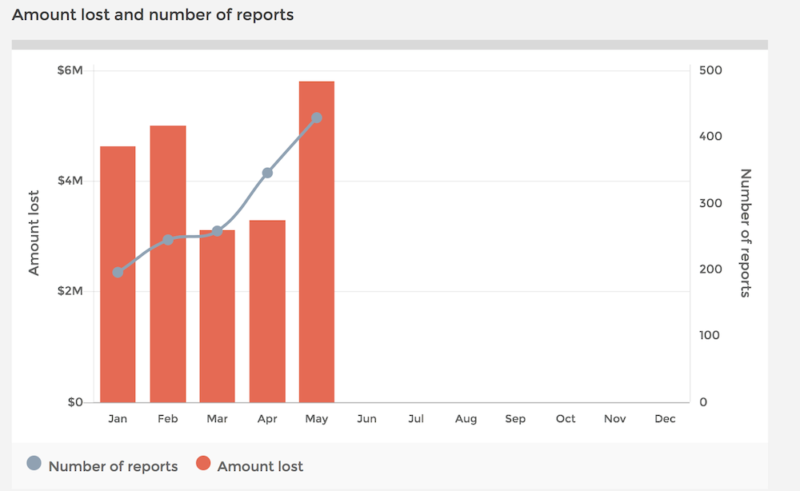Australians report record losses to investment fraud in May 2018 – Scamwatch
Australians reported losses of $5.8 million due to investment scams for May 2018, with 429 reports about such fraud submitted.

The latest numbers provided by Scamwatch, the body operated by the Australian Competition and Consumer Commission (ACCC), indicate May 2018 was one of the most active months ever for investment fraudsters, with the amount lost to such scams hitting record levels.
Australians reported losses of $5.8 million due to investment scams for May 2018, with 429 reports about such fraud submitted. These are the highest monthly losses caused by investment scams on record, taking the amount lost by Australians as a result of investment scams since the start of this year to more than $21.8 million. Previous records were set in November 2017 and February 2018.

The biggest losses were suffered by elderly people (of more than 65 years of age). Australians from 35 to 44 years of age were the most active in reporting investment fraud last month.
A type of investment fraud that is currently gaining momentum in Australia involves cryptocurrencies. Earlier this year, Consumer Affairs Victoria, a business unit of the Department of Justice & Regulation, within the Victorian government, voiced its concerns about Bitcoin scams. Victoria’s consumer regulator said it had received reports of people being defrauded through fake Bitcoin websites. The average amount lost is not that large – around $300, but the body sees this type of fraud as worrisome.
In the meantime, the Australian authorities continue to remind cryptocurrency exchange platforms that they are now subject to new regulatory requirements and need to register with AUSTRAC. The registration of such a business with AUSTRAC, however, does not constitute endorsement.
Digital currency exchanges have been required to apply for registration from April 3, 2018 and remittance providers are already required to be registered.
AUSTRAC has warned that businesses must not use their registration status in any way that suggests AUSTRAC or the Commonwealth Government endorses them or any of their services or products. Words including ‘endorsed’, ‘approved’ or ‘licensed’ are examples of inappropriate wording. The new requirements stem from the Anti-Money Laundering and Counter-Terrorism Financing Amendment Act 2017, also known as the “Bitcoin bill”. In December last year, the legislative piece passed both Houses and got Royal Assent.









